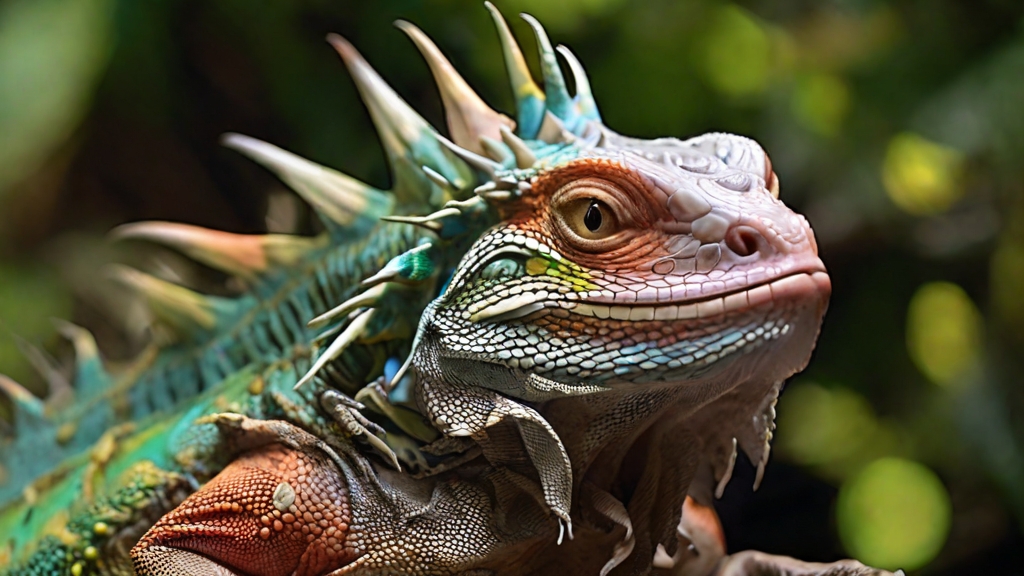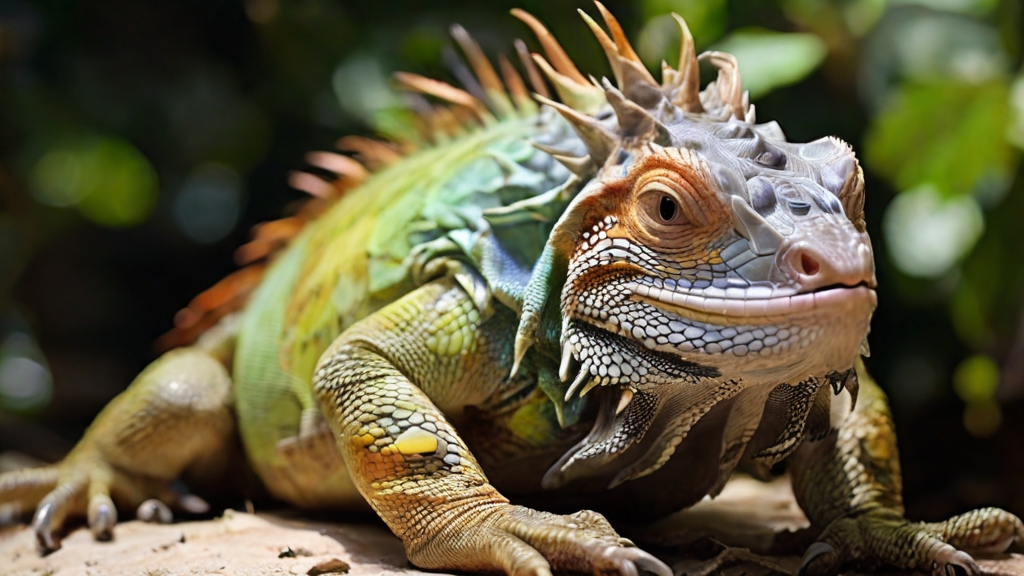Iguanas are a popular choice of pet for reptile enthusiasts due to their unique appearance and relatively low maintenance compared to other pets.
However, as with any animal, it is important to understand their behavior and needs in order to provide the best possible care.
In this article, we will explore what iguanas are known for and provide tips on how to care for these fascinating reptiles.
What Are Iguanas Known For?
Iguanas are known for their distinctive appearance, with a long tail and scales that can range in color from bright green to brown or grey. They are also known for their ability to swim and their love of basking in the sun.
In terms of behavior, iguanas are generally docile and do not exhibit aggressive behavior towards humans. However, they can be skittish and may try to escape if they feel threatened. It is important to handle iguanas gently and respect their boundaries.
Iguanas are also known for their diet, which consists primarily of vegetation such as leaves, flowers, and fruit. It is important to provide a varied and balanced diet in order to ensure that your iguana stays healthy.
Different Types of Iguanas
There are several different species of iguana, each with its own unique characteristics and requirements. Some of the most common species of iguana kept as pets include:
- Green iguana (Iguana iguana): The green iguana is the most common species of iguana kept as a pet, and is known for its bright green coloration and long tail. They can grow up to 6 feet in length and require a large, enriched habitat with plenty of space to move around and bask. Green iguanas are herbivorous and require a diet that is primarily vegetation-based.
- Red iguana (Iguana iguana): The red iguana is a color morph of the green iguana, and is known for its reddish-orange coloration. They have the same care requirements as green iguanas and are also herbivorous.
- Spiny-tailed iguana (Ctenosaura similis): The spiny-tailed iguana, also known as the black spiny-tailed iguana or black iguana, is native to Central America and parts of South America. They are smaller in size compared to green iguanas, reaching a maximum length of about 3 feet. Spiny-tailed iguanas are omnivorous, feeding on a variety of plant and animal matter, and are known for their distinctive row of spines along their tail. They are generally found in dry, rocky areas and are adapted to climbing and basking in the sun.
How to Care for Iguanas
Caring for an iguana requires a specific set of conditions in order to mimic their natural habitat as closely as possible. Some tips for caring for iguanas include:
- Providing a spacious and enriched habitat: Iguanas need plenty of space to move around and explore, as well as items such as branches and hiding spots to stimulate their natural behaviors. The size of the enclosure will depend on the size of the iguana, with larger species requiring larger enclosures.
- Maintaining the correct temperature and humidity: Iguanas need a warm and humid environment in order to thrive, with a basking area that is kept at around 95 degrees Fahrenheit and a cooler area that is around 75-80 degrees Fahrenheit. A humidifier may be necessary to maintain the proper humidity levels. It is also important to provide a heat source such as a basking lamp or heat pad in order to maintain the proper temperature.
- Providing a varied and balanced diet: As mentioned earlier, iguanas require a diet that is primarily vegetation-based. It is important to offer a variety of leafy greens, vegetables, and fruits, and to avoid feeding them high-fat or sugary treats. It is also important to provide a calcium supplement in order to maintain proper calcium levels.
- Ensuring proper lighting: Iguanas need access to natural sunlight or artificial UVB lighting in order to synthesize vitamin D and maintain proper calcium levels.
- Providing regular veterinary care: It is important to take your iguana to the veterinarian regularly for check-ups and to address any potential health issues.
Conclusion: What Are Iguanas Known For?
Iguanas are known for their distinctive appearance, docile behavior, and vegetation-based diet. By understanding their needs and providing proper care, you can help ensure that your iguana stays healthy and happy.
If you have any questions or comments about iguanas, feel free to leave them in the comment section below.




